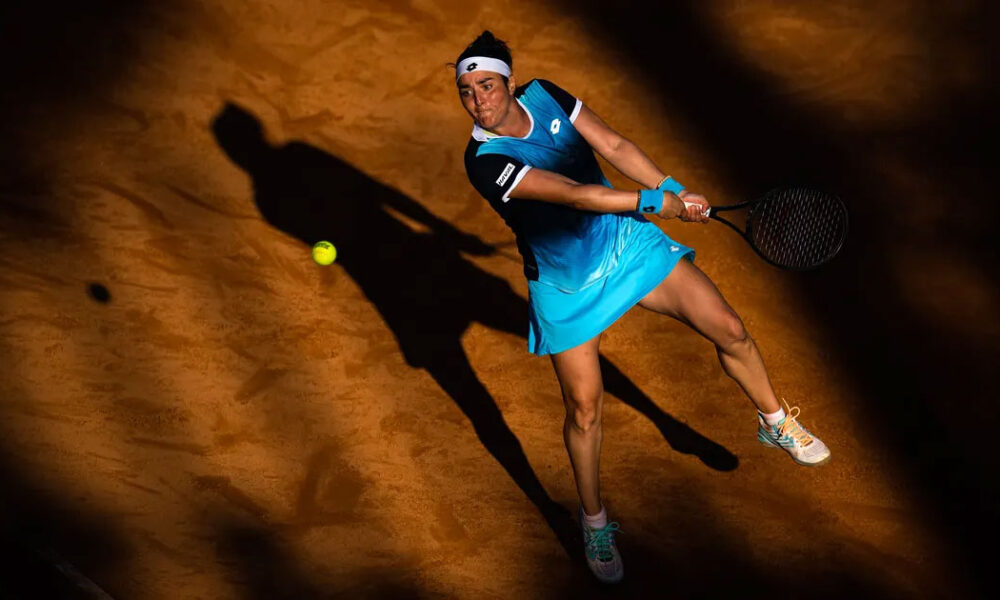When the greatest of all time, Serena Williams, made a return to tennis this past June, she decided to play doubles on the grass at the Eastbourne International. Looking for an in-form partner, she called up the talented Tunisian Ons Jabeur. Jabeur, the first Arab woman to break into the world’s top 10 and the first African woman since South African Amanda Coetzer to enter these elite ranks, had just won the Berlin Open the week prior. This duo electrified the crowd, upsetting higher-seeded doubles specialists and putting together ludicrous shots and angles that would make the most pretentious geometrist jealous.
As the 2022 season closed, Jabeur capped off a prodigious and productive year––reaching the finals at both Wimbledon and the U.S. Open, spearheading efforts to hold a tournament in Monastir, Tunisia, and finishing second overall in the world rankings. 2022 was a standout year for African tennis. Along with Jabeur’s remarkable successes, Mayar Sherif became the first Egyptian woman to win a Women’s Tennis Association (WTA) title in Parma.
However, the winning efforts of players alone should not be incumbent for African tennis or Arab tennis to matter. Looking ahead to 2023, the administrative bodies of tennis—the WTA, in this case—must actively commit to decolonizing tennis. They must loosen the grip the United States, Great Britain, Europe, and Australia have on the overwhelmingly white sport by building new tournaments and training centres to increase access to tennis for women players across the world.
Let the statistics radicalize you. Jabeur, ranked no. 2, and Sherif, ranked no. 50, are the only two African tennis players in the top 100. The next highest-ranked African tennis player? World no. 265 Sada Nahimana from Burundi. The only WTA tournament in Africa slated for next year? The Moroccan Open, a WTA250 level tournament scheduled a week before the French Open––meaning that players will be less likely to participate. Tournaments in the Middle East, Latin America, and Asia raise high ticket sales, and bigger tournaments like those in Dubai, Qatar, and Tokyo serve as mainstays of WTA tennis. As well, successful players from underrepresented countries, such as Brazil’s Beatriz Haddad Maia, Kazakhstan’s Elena Rybakina, China’s Qinwen Zheng, and Colombia’s Camila Osorio continue to make leaps. But this work multiplies when they have to fight to be seen.
To make a living as a tennis player, you have to win at the big tournaments and you have to do it year-round. A run to the quarterfinals at one of the four Grand Slams held in Europe, Australia, or America will win you approximately $400,000 USD. A semi-finals run in one of the WTA1000s garners $300,000 USD. A victory at one of the two WTA500s held in Asia (out of 12 total) could save your career, pay for your flights, your coach, your accommodations, your physio, your equipment, and your clothing—as you don’t have a sponsor until you become an American citizen. You had better hope that your friends and family from home won’t miss you when you’re in Ostrava. Can you afford the constant flights out of Addis Ababa, Lagos, or Kinshasa in order to compete in the most highly touted WTA tournaments and hopefully make a living in tennis? Non-European, non-Australian, and non-North American tennis players comprise only 12 out of the top 100 who get prioritized entry into where to play. How can you compete with one another in a game already rigged against you?
Tennis needs to move past its dangerous individualism, laden in its claims as the “most civil sport.” The WTA is not ready to properly celebrate Jabeur, Sherif, Naomi Osaka, or Li Na––the first Asian woman to win a Grand Slam who built the WTA1000 Wuhan Open. It may be when it dismantles the systems that prevent players who look like them and who come from the same underrepresented countries as them from rising.
The WTA’s Player Council, which does not include a representative for Africa, must push for equity. As their investments in the 2021 WTA Finals in Guadalajara show, the WTA should seek out opportunities to stimulate not only tournaments, but training centres for youth across the African continent. Fans should watch tennis both for the matches and for certain players’ unfair advantages. For us in the African diaspora––Black, North African, and Arab fans stirred by her brilliance alike––seeing Ons do well marks a fateful first step for the dreams we share of a decolonized future for tennis.









Pingback: Decolonizing tennis, tournaments, and talent - POSTOLINK